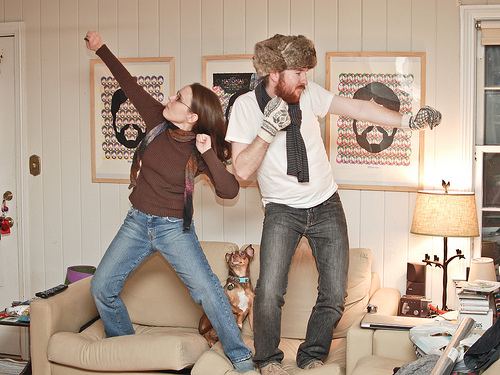Cross-posted from Sightline Daily.
Tight budgets and the internet have given rise to the hottest new thing in travel accommodations: spare bedrooms.
Web-based company Airbnb has received a lot of press recently for its for-profit service that matches travelers with empty bedrooms, such as mine, in Seattle. Airbnb and other companies that create a market for guest rooms could fundamentally change the hotel industry, boost income for thousands of homeowners, and slash the ecological footprint of travel.
That is, unless the emerging eBay of bedrooms is strangled by a thicket of rules and regulations that currently govern the operation of hotels.
Last May, New York City enacted a law “banning renting out Class A residential spaces — apartments intended only as permanent, rather than transient residences — for less than 30 days,” according to the real-estate magazine The Real Deal. “The move was prompted, in large part, by complaints from those living next to apartments rented on the website [Airbnb], as well as from the Hotel Association of New York City, a trade group that was concerned about short-term rentals eating into the city’s hospitality business.”
The company is still going strong in New York City, with growth clocking in at 35 percent per month since September 2010. Still, the law casts a legal shadow, if not a legal net, over a growing slice of what’s come to be called the “sharing economy.”
This kerfuffle in New York has spotlighted Airbnb’s vulnerability, and while no other jurisdictions have yet clamped down as publicly as New York, who knows what hotel-industry counterattack is in the works.
Think it couldn’t happen? The situation is eerily similar to what happened to Zipcar in the state of Washington in 2007. Zipcar was then the rising star du jour of web-based collaborative consumption enterprises. Out of the blue, the Washington Department of Revenue ruled that Zipcar had to pay the state’s rental car tax, which adds 10 percent to the existing state sales tax.
The department did this because the rental car companies had been quietly threatening to make a giant stink about unequal treatment. Zipcar and car-sharing advocates did not hear of the tax hike until it was too late to stop it. They were caught flat-footed. Since then, Washingtonian car-sharers have never been able to roll back the change, despite considerable effort. Politically, undoing changes is like putting Humpty Dumpty back together again.
Proponents of the fledgling industry of in-home hoteling would do well to anticipate the attacks that the hotel industry will undoubtedly unleash, and may be plotting already. Otherwise, they’ll end up blindsided.
After all, the whole enterprise is still in its infancy. In greater Seattle, for example, about 700 different lodgings are now available on a typical night. That counts both Airbnb and Couchsurfing.org, the older, free counterpart used by backpack travelers worldwide. (If Airbnb is the eBay of guest rooms, Couchsurfing is the Craigslist.) Taken together, they amount to just 2 percent of the 34,459 hotel rooms in the greater Seattle area.
Still, the rapid growth of in-home accommodations could take a big bite out of hotels’ business. That’s especially true when you consider that much of North America’s existing housing stock was designed for larger families than are common today. One study by Urban Futures in Vancouver, British Columbia, estimated that 29 percent of all homes had more bedrooms than people in them. That’s more than 220,000 empty bedrooms in that city alone. Multiply that across the landscape and you’ve got a massive untapped reservoir of accommodations, already built, painted, furnished, heated (and sometimes cooled), and provided with bathroom and kitchen access.
Of course, sharing your guest room or your home with perfect strangers is not without its risks. A few bad apples got through Airbnb’s screening before the company tightened up its systems. But channeling travel growth into existing homes rather than new hotels would bring big environmental benefits, as Finnish think tank low2no.org argued in an analysis of the carbon footprint of hotels.
Yet this green, affordable, and sociable form of housing for travelers is vulnerable to cries of unequal treatment from big business. Conventional hotels are regulated in special ways under land-use laws (their locations and sizes), building codes (fire safety, structural integrity, handicap access), health codes (especially if they have restaurants), and tax laws (most jurisdictions have special taxes on hotel stays, for example).
The spare-bedroom market, however, flies under the radar of most such laws at present. Exempting it from hotel-specific regulations makes good sense. Social evaluation tools on collaborative consumption sites such as Airbnb (think of the seller and buyer rating systems on eBay) allow a degree of transparency and accountability unheard of in prior times, which obviates the need for as much regulation and public enforcement.
Besides, in the new era of straitened economics, expensive energy, and the imperative of moving beyond carbon, we should be encouraging, not constraining, fuller sharing of existing assets, whether cars or bedrooms. Especially when it boosts income for homeowners.
Including me! If you’re coming to Seattle …




